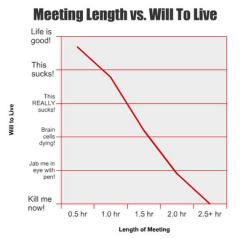This is an exceptionally gift-filled season for our family.
My wife is Jewish, so we celebrate Hanukah. Or Hanukkah. Or Chanukah.
Her people really need to decide upon a spelling.
In accordance with the tradition, we should be giving a gift to one another every night for eight straight nights.
That means a total of 24 gifts if Clara, Elysha and I participate in this tradition.
That’s a lot of gifts.
And it’s just the start.
I grew up celebrating Christmas, so Elysha and I celebrate this holiday as well. There are stockings in need of filling and space under our Christmas tree in need of presents.
More gifts to add to the mix.
But there’s more.
My wife’s birthday falls in the first week of January, and my daughter’s falls in the last week of January.
More presents.
My birthday falls in the middle of February.
Still more.
Add to this my father-in-law’s birthday on New Year’s Eve and we have a great many gifts to purchase over a two month period.
And while my wife and I are probably less enthusiastic about receiving gifts than most, we enjoy giving gifts quite a bit. It creates quite conundrum since we are not yet independently wealthy and still need to eat during the holiday season.
But good news! The New York Times reported on a study this week that illuminates three new rules for gift giving:
- You don’t have to spend any time looking for “thoughtful” gifts.
- You don’t have to spend much money, either.
- Actually, you may not have to spend any money.
“Our research shows that while gift-givers think they’re being more thoughtful by picking out expensive gifts, the recipients don’t appreciate the hefty price tag,” Dr. Flynn said. His experiments have shown that the price of a gift matters more to the giver than to the recipient, and that people like a surprise gift less than cash or something they picked themselves through a gift registry like Amazon’s wish list.
Good to keep in mind during this holiday season.
And while I wholeheartedly agree with the findings of this study (I wanted to send deposit slips with our wedding invitations but Elysha nixed the plan… and later acknowledged it wasn’t so bad an idea), there are individuals in my life who place great meaning in both the gifts they give and the ones they receive.
Gift giving and gift receiving is a serious situation for these people, so tread carefully lest you find yourself in a quagmire of backbiting, misplaced angry, nonsensical logic, and materialistic fisticuffs.
Thankfully, my wife is not one of these lunatics. She is a genius when it comes to finding gifts under $5 that I will adore forever, but like me, she does not place a great deal of importance on the receiving of gifts. While some concern themselves with gift giving equity and gift giving reciprocity, we care very little.
Nevertheless, we face a massive demand every holiday season, and as a result, Elysha and I cut deals in order to avoid going into massive debt every year.
In regards to Christmas, she and I have agreed to stuff one another’s stockings this year but otherwise forgo Christmas gifts in favor of upgrading our entertainment system. A device of some sort to stream Netflix and perhaps other media outlets like Hulu, and maybe (at last) an HD television.
We currently watch TV on a 46-inch projection television that I purchased in 2002. It’s plenty big and still works fine, especially for two people who don’t watch much television, and I have no place for it once it’s been replaced with a more modern TV, but it might finally be time to retire the massive thing it to the basement.
My friends won’t even come over to watch football anymore since I can’t display it in high definition.
So giving ourselves an upgraded entertainment system makes sense. We were going to eventually spend the money anyway, so why not make it our mutual gift and kill two birds with one stone.
Then we had to make a decision on Hanukah.
We began by agreeing to give each another a gift on the first night. After that, we decided to get creative.
I proposed a small food item for each night. Something that we wouldn't normally have the chance to eat, or perhaps something new altogether, but this idea was dismissed based upon the number of calories that it would introduce into an already calorically challenged holiday season.
I thought my next idea was a stroke of brilliance. In lieu of gifts, we would each provide the other with a URL to something on the Internet that would interest and entertain each other. A website that we would not normally land on without someone specifically directing us there. It would be the gift of discovery.
Elysha didn’t like it. In retrospect, it is kind of dumb. But I still like it.
Then Elysha proposed an admirable solution.
In lieu of gifts, we will take turns taking one another out on a date once a month for seven months.
I take Elysha out in January. She takes me out in February. We continue alternating months this way through July.
Yes, this means that the last couple months will run into the new baby, so the date may consist of pizza and a movie (hopefully streaming through Netflix on our new high definition television), but it will be up to the person responsible for that month to make the date the best it can possibly be.
A good solution, I thought, and something we should be doing for one another more often anyway.
So I find myself wondering if other families cut these kinds of deals in order to avoid going into hock.
And also wondering if we might still be doing the same thing even if we had all the money in the world.
Alternate-date month sounds like fun.
Opting for an upgraded entertainment system over another new sweater sounds about right to me.
So many of us have so much already. Too much.
















